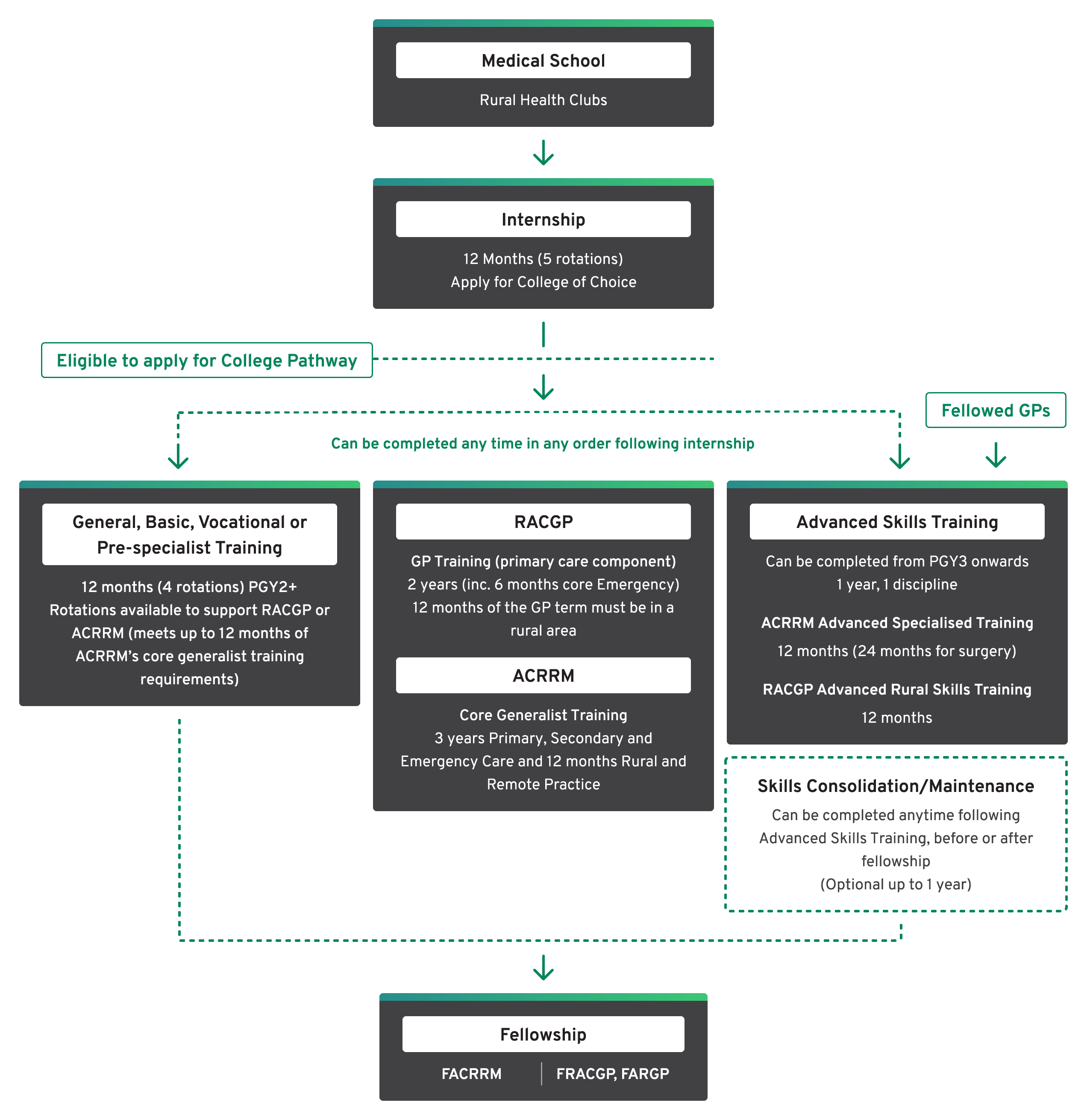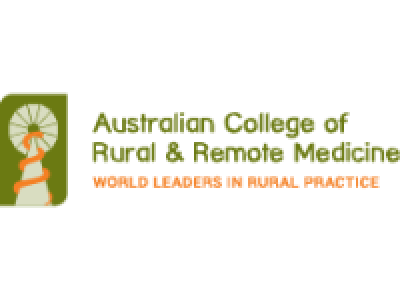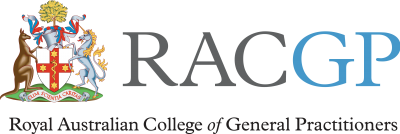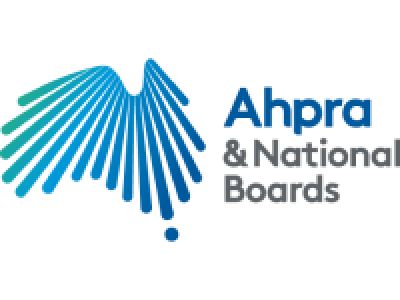More than just a career
A rural generalist is a medical practitioner that works in rural areas utilising general practice, emergency and other medical specialist skill sets matched to the needs of the local community they serve. In South Australia, rural generalists live and work in our rural communities providing valuable primary care services as well as a range of hospital based services including but not limited to emergency medicine, anaesthetics and obstetrics.
There is a choice of training pathways a trainee can choose to become a rural generalist. Rural generalist trainees can train with either the Australian College of Rural and Remote Medicine (ACRRM) or the Royal Australian College of General Practitioners (RACGP). Each of these training pathways have a number of key mandatory stages of training and funded and self-funded programs to achieve Fellowship.
To watch our video Train with passion and purpose – Rural Generalist Program South Australia (RGPSA) click on the image
Benefits of RGPSA program
Dr Yee Ching ‘Olivia’ Ong
Coordinated Training
Trainees will be able to undertake training for both ACRRM and RACGP from internship through to fellowship within a geographical area with connection to the workforce for easy transition post fellowship.
Left to right: Dr Nikki Pennifold, Dr Kris Ghosh, Dale Mortensen, Dr Zahraa Ajool
Supported Quality Training
Access high quality and well supported training tailored to trainees needs with attractive rotations, broad clinical exposure and greater hands on experience that develops high clinical and reasoning skills.
Emu Bay, Kangaroo Island. Source:South Australian Tourism Commission, Photographer Elliot Grafton
Work Life Balance
Enjoy a better work life balance, with only a few minutes travel to work, sense of community and recreation activities that you won’t experience in metropolitan areas.
Sign up to the RGPSA
Sign up with us if you are interested in or need advice on rural training pathways or are already training in rural and would like to access a range of supports. We are here to support your training journey.
Training pathways
Each of the different training pathways have similar key stages of training that must be completed to achieve fellowship.

Internship (PGY 1)
A series of work rotations designed to expose trainees to a range of clinical experiences
PGY 2+
General, basic, vocational or pre-specialist training across hospital and community rotations in addition to Intern rotations
General Practice Training
Primary, secondary, and emergency care training
Advanced Skill Training and Skills Consolidation
Expands and enhances the professional knowledge and scope provided to the community in one discipline
See where you can access rural medical training in South Australia
The Rural Generalist Program South Australia’s interactive map shows the training sites across South Australia where training opportunities exist. Each site may have multiple training opportunities or rotations across the different training levels.
Partner organisations
This initiative is supported by the National Rural Generalist Program with the Australian Government’s Department of Health.









